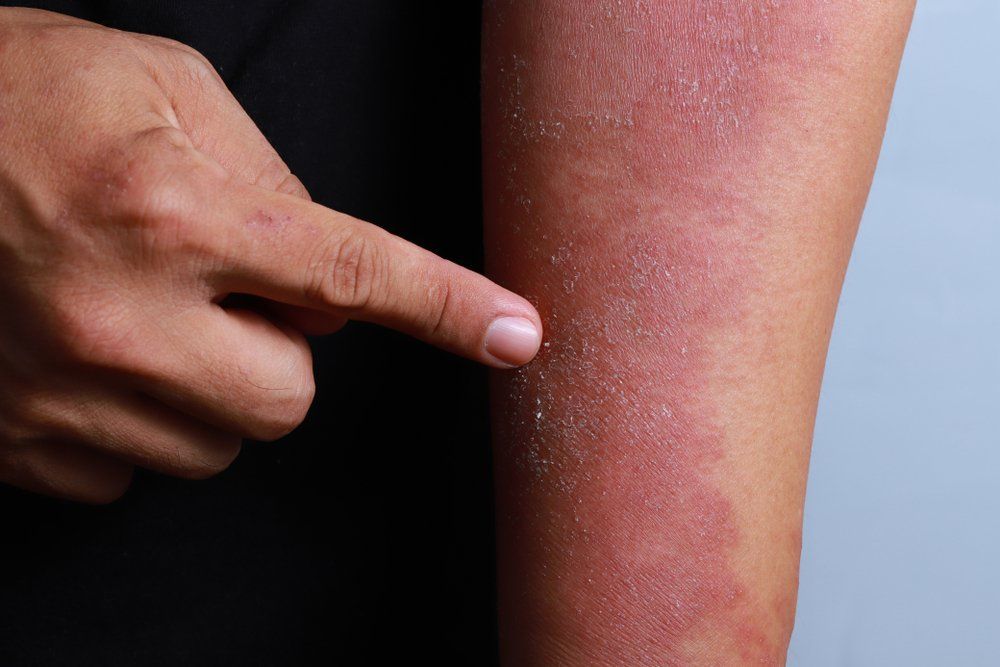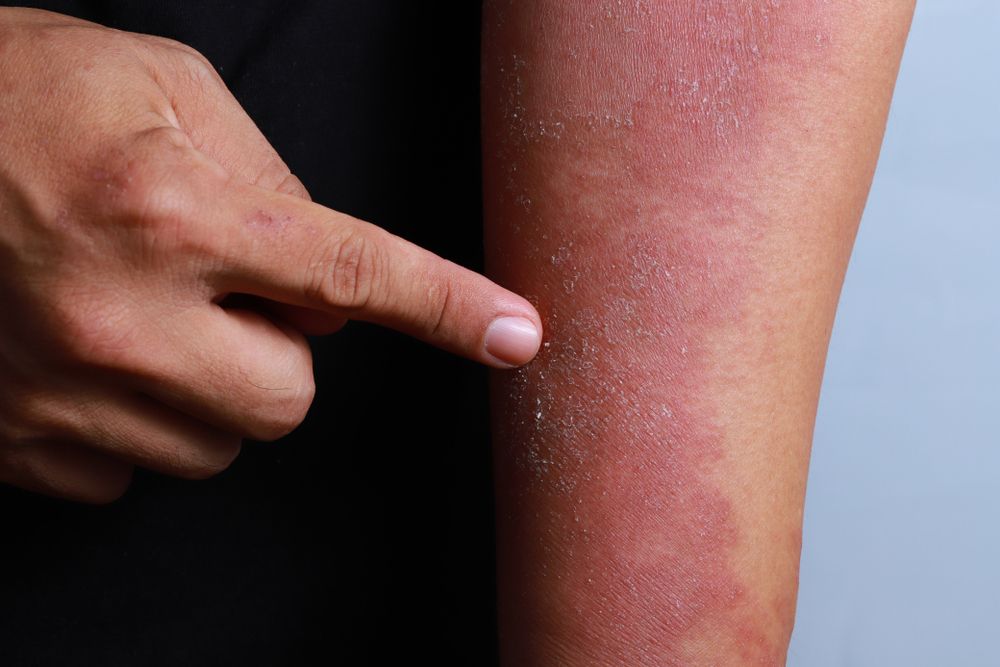- Case-Based Roundtable
- General Dermatology
- Eczema
- Chronic Hand Eczema
- Alopecia
- Aesthetics
- Vitiligo
- COVID-19
- Actinic Keratosis
- Precision Medicine and Biologics
- Rare Disease
- Wound Care
- Rosacea
- Psoriasis
- Psoriatic Arthritis
- Atopic Dermatitis
- Melasma
- NP and PA
- Skin Cancer
- Hidradenitis Suppurativa
- Drug Watch
- Pigmentary Disorders
- Acne
- Pediatric Dermatology
- Practice Management
- Prurigo Nodularis
- Buy-and-Bill
Article
More evidence of cardiovascular disease in atopic eczema
Author(s):
Adults with severe and mostly active atopic eczema are at a higher risk of developing cardiovascular disease, a population-based study shows.
Adults with severe and mostly active atopic eczema are at a higher risk of developing cardiovascular disease, a population-based study shows.(©AdobeStock_192267302_Sawitreelyaon)

Adults with severe and mostly active atopic eczema are at a higher risk of developing cardiovascular disease, a population-based study shows.
For the study, 387,439 patients with atopic eczema were matched to 1,528,477 patients without the disease.
Patients with severe atopic eczema were 20 percent more likely to have a stroke. They had a 40-50 percent greater likelihood for myocardial infarction, unstable angina, atrial fibrillation and cardiovascular death, and 70 percent more likely to have heart failure.
Because of these findings, the authors advocate that clinicians consider targeting cardiovascular disease prevention strategies in these at-risk patients.
The study, published in BMJ in May 2018, was led by Richard Silverwood, Ph.D., of the London School of Hygiene and Tropical Medicine in the United Kingdom.
The study is based on data from the UK Clinical Practice Research Datalink (CPRD), representing roughly 9 percent of the UK population. The information was then linked to Hospital Episode Statistics Inpatient data, Office for National Statistics mortality data and index of multiple deprivation data.
All adult patients at least 18 years old contained in the CPRD database between January 1998 and March 2015 and linked to Hospital Episode Statistics data were eligible for inclusion in the study.
The median follow-up was 5.1 years, for which the associations between atopic eczema and cardiovascular disease were strongest for unstable angina and heart failure.
But there was no convincing evidence that age, sex or current asthma status impacted results.
“Mechanistic work suggests that atopic eczema may be associated with increased platelet activation and decreased fibrinolysis, which may increase the risk of clotting, though a recent study found no association with metabolite levels,” the authors wrote.
While some studies have concluded a positive association between severe atopic eczema and cardiovascular outcomes, others have shown this link in mild atopic eczema to be either slightly protective or near zero.
“This may suggest a dose-response effect, an alternative pathogenesis underlying mild compared with severe conditions, the effect of systemic therapies used to treat severe forms of atopic eczema, or misclassification bias owing to the way in which patients with atopic eczema were classified,” they wrote.
Previous European and Taiwanese studies relied on data from administrative databases, which likely have incomplete data on potentially important cardiovascular risk factors such as body mass index (BMI), smoking and alcohol consumption.
“These factors may be more prevalent in patients with atopic eczema and could therefore contribute to an increased risk of cardiovascular outcomes,” they wrote.
The current study is one of the few longitudinal studies that adjusted for these risk factors. “It is also the first study based on primary care data, meaning that our results are generalizable to a broad population with atopic eczema.”
In an editorial that accompanied the study, Sinead Langan, Ph.D., of the London School of Hygiene and Tropical Medicine, wrote that previous studies have shown variable findings for the link between eczema and cardiovascular outcomes.
“No previous research focused on the concept of disease activity over time, both of which are heterogeneous between patients, and clinically important to patients and physicians,” she wrote.
The editorial writers also noted that because eczema is so prevalent, even an incremental increase in cardiovascular disease risk could greatly impact public health.
The possibility of misclassification of eczema exposure is one potential source of bias within the study, according to the writers, which was addressed by conducting eight sensitivity analyses.
Overall, the risks of cardiovascular disease among eczema patients were higher than the editorial writers anticipated. “If these results are robustly replicated, it would support targeted screening and a focus on primary prevention strategies to reduce cardiovascular disease among such patients,” they said.
REFERENCES
Silverwood RJ, Forbes HJ, Abuabara K, et al. “Severe and Predominately Active Atopic Eczema in Adulthood and Long Term Risk of Cardiovascular Disease: Population Based Cohort Study,” BMJ, 2018;36:k1786. DOI:org/10.1136/bmj.k1786
Langan S, Silverwood R. “Severe Eczema and Increased Risk of Cardiovascular Problems,” BMJ, 2018






